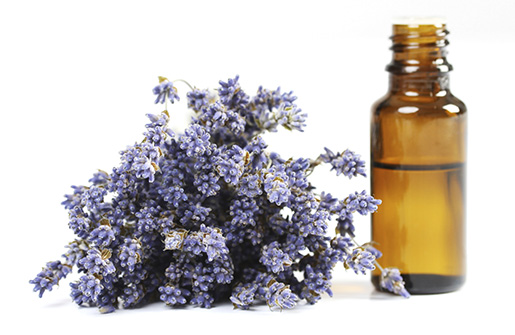Natural Insect Repellents That Work

Chances are, if you’ve used bug spray, you’ve probably applied DEET. “DEET is the most widely used insect repellent in the U.S. and is the leading ingredient in most conventional bug repellents,” says Lori Alper, founder of natural lifestyle blog Groovy Green Livin.
So is it dangerous? Not when used properly, according to the Environmental Working Group (EWG), the Centers for Disease Control and Prevention and the Environmental Protection Agency. “The tricky part is following the directions,” says Alper. “Most of us don’t, and we end up applying too much and leaving it on our skin for far too long. DEET then becomes highly toxic.”
According to the EWG, one common mistake leading to overexposure is using a sunscreen that also contains a chemical bug repellent. Two-hour reapplication (as you should do for sunscreen) can lead to overexposure to chemicals like DEET. So use both a mineral-based sunscreen and an effective bug repellent, but as separate products.
Another consideration: The environment. Alper notes that in addition to physical concerns, “DEET is also toxic to birds, animals and aquatic life.”
Natural insect protection that works
When it comes to “natural” bug repellents, the EWG’s Advice for Avoiding Bug Bites offers the simple—and most natural of all—tip to start: “As your first line of defense, cover up with pants and long sleeves.”
Then, it’s on to the more complicated part of choosing the product that’s best for you and your family. Although chemical ingredients DEET and Picaridin remain among the EWG’s top picks for safe and effective protection, if you’re concerned about their potentially toxic nature, one natural option stands out as being most effective: lemon eucalyptus oil.
When put to the test, lemon eucalyptus oil was as effective against mosquitos as low concentrations of DEET, according to a 2008 study by the Department of Health and Human Services. The EWG recommends looking for a product with a concentration of 30 to 40 percent to protect for long periods of time (although it shouldn’t be used on children younger than 3).
Soybean oil, too, has been proven to protect from bites for between five and eight hours. But remember: You may need to use natural products differently than chemical ones, according to Risa Barash, founder of Fairy Tales Hair Care, which has recently added natural insect repellents to its line of lice-control hair care for kids. “Natural products tend to need to be applied more frequently than conventional repellent formulas,” she says. “While the research has shown soybean oil to be effective for five to eight hours, it is best to continue to reapply after one hour.”
For protection during an afternoon barbecue or an evening on the porch, Alper also recommends looking for citronella candles, buckets and sprays. “The scent from the citronella plant itself is your best bet in keeping the mosquitoes away, since that provides the strongest protection. Citronella’s strong smell tends to mask your scent, making it harder for mosquitoes to find you.” Other essential oils known to repel insects: clove, lemongrass, rosemary, tea tree, eucalyptus, cedar, lavender and mint, she says.
DIY bug bite soother
For irritating bites, try this natural solution from 101 Easy Homemade Products for Your Skin, Health & Home (Page Street, 2016). Lavender soothes pain and itchiness while also serving as a mild insect repellent.
Ingredients:
- ½ cup sunflower oil
- ¼ cup dried lavender flowers
- 1 tablespoon tightly packed
- beeswax, grated or pastilles
- 2–4 drops lavender essential oil
Directions:
- Infuse sunflower oil with lavender flowers.
- In a heatproof glass jar or container, combine 3 tablespoons of the lavender-infused oil and the beeswax. Place jar in a saucepan surrounded by 1–2 inches of water, forming a makeshift double boiler. Place pan over medium-low heat until the wax in the jar is melted. Stir lavender essential oil into the wax; pour melted wax into lip balm tubes or miniature containers. Chill to set.
- If it’s too soft or too firm, just melt the ingredients again and add more beeswax (for a firmer product) or oil (for a softer one).
- Dab on bee stings, bug bites and other itchy spots as needed.
